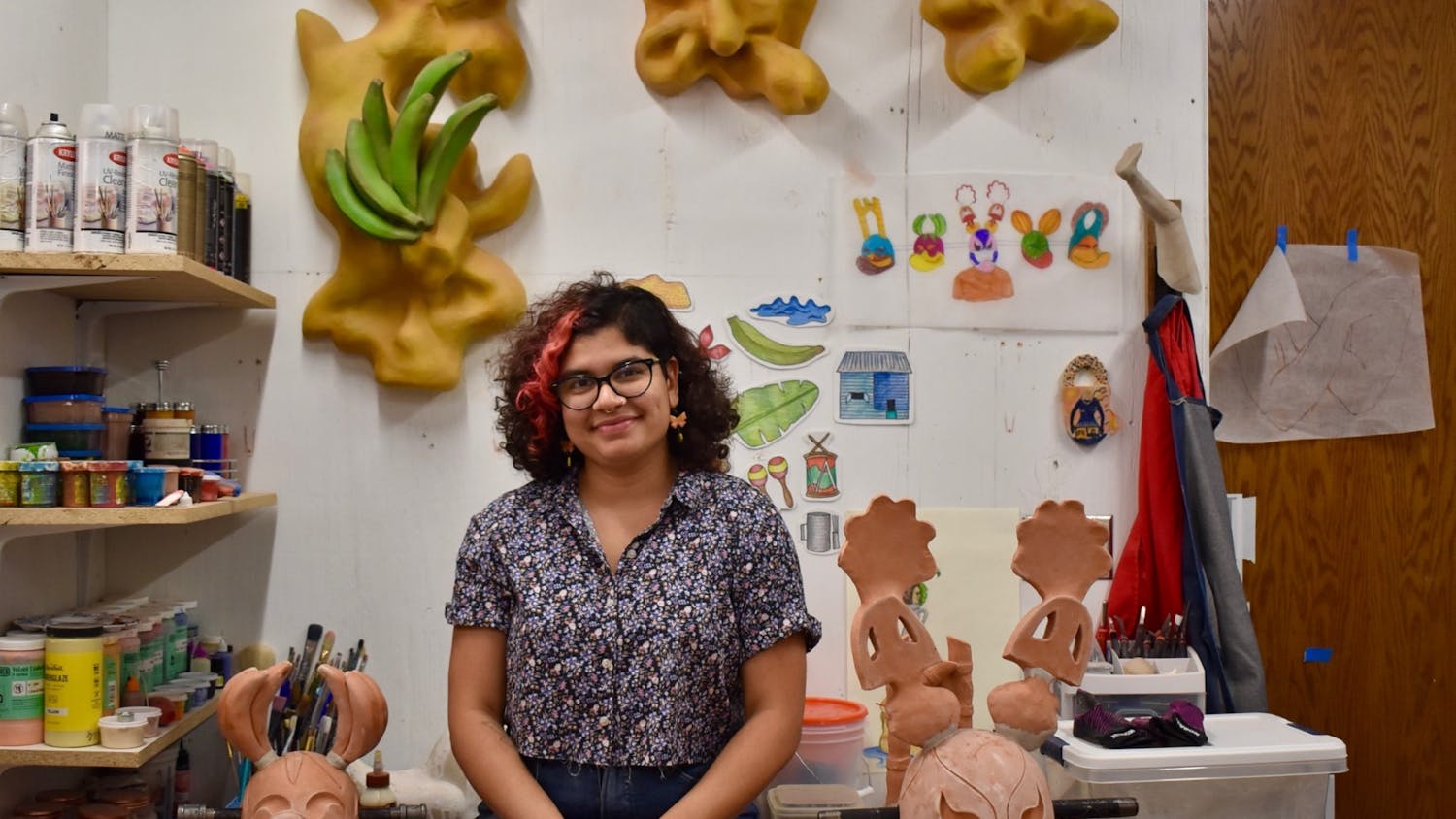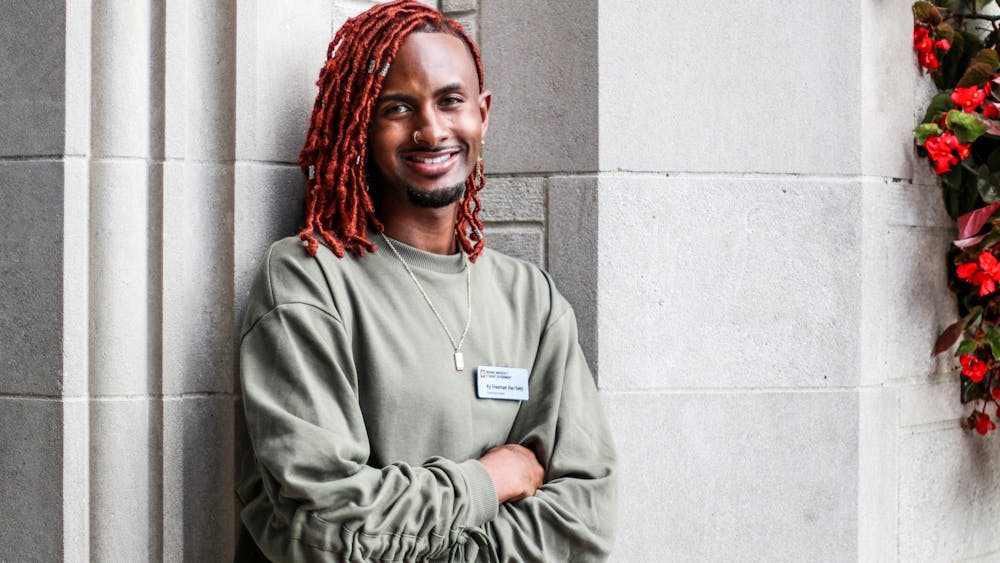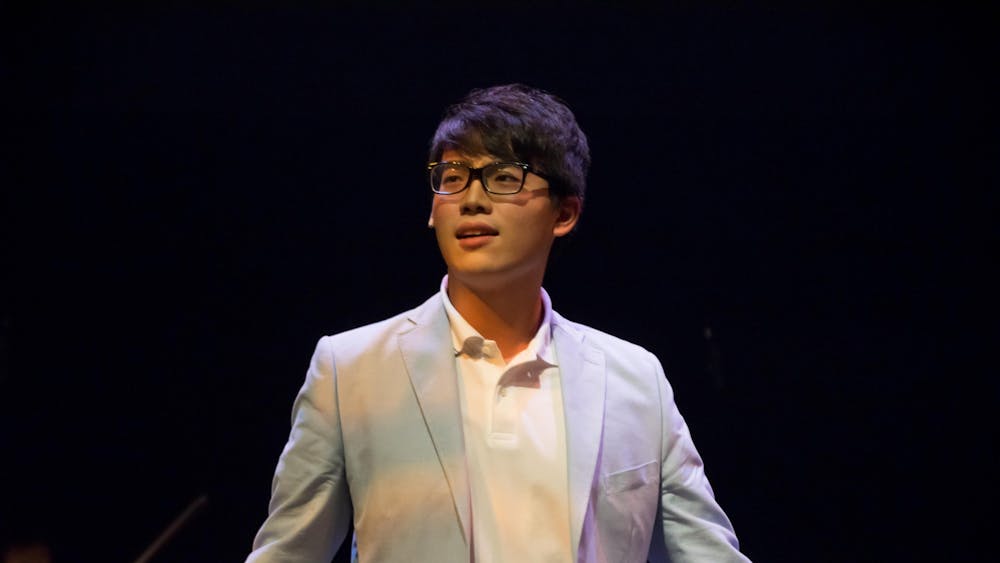When IU freshman Austin Babb applied to colleges, something stuck in his mind and never left.
One of the colleges that accepted him was the Hult International Business School in London.
Although Babb decided IU would be a better fit for him because of expenses and cultural gaps, he said he didn’t forget Hult’s appeal.
During his visit to Hult’s Boston campus, Babb learned about the Hult Prize — worth $1 million — that is awarded to a group of young entrepreneurs who work together to solve a world crisis.
The money is used to start up the best business designs.
For the fifth year of the competition, the crisis at hand is improving chronic disease care in slums by the year 2019.
Participants must find a way to reach 25 million people with a social health care distribution enterprise that is both sustainable and profitable.
Babb turned to freshman Landon Miller with the idea, and he was on board right away.
Together they found the next two team members, freshmen Tanuj Gupta and Joshua Letwat.
“We felt that they would be an excellent complement,” Babb said.
Miller said the group works well together. Each member brought different skills and experience to the project.
“Our strengths and weaknesses cover each other,” Miller said.
Letwat said the application process consisted of common components like resumes and GPAs.
The team also had to submit a statement of purpose explaining what their plan was and why they were passionate about seeing it succeed.
“We had to present the idea up front,” Letwat said.
Even so, the plan had to remain malleable because requirements have the potential to be changed slightly at any time, Letwat said.
After getting through the application process, the team got to work on developing a more detailed and concrete plan to deal with the issue of health care in slums.
Letwat said they sought the help of Kelley School of Business professors, the Kelley Institute for Social Impact and a variety of other resources at their disposal on campus.
“We are the only IU team that’s competing,” Babb said.
All four members have spent time abroad in places including India and Latin America, experiences that Babb said benefitted their understanding of life and health care possibilities in slums across the globe.
These experiences inspired them to develop a method of both diagnosing illnesses and distributing medicine to people in need.
So far, all four members have come up with a variety of ideas about how the distribution of medicine could be possible and profitable.
Miller and Letwat described the use of by-products coming from power plants to help create these life-saving medications.
“We actually convert something that’s not going to be used into something that’s going to be beneficial to people,” Gupta said.
Lack of vital resources such as food and water cause people to put medical care lower on their list of priorities, Letwat said.
Because people are sometimes fearful of accepting foreign medicines, Gupta said people will be more likely to accept medical help in the form of food — nourishment that they may have already been deprived of because of their quality of life.
“There’s a myriad of problems that we’re going to have to face,” Letwat said.
The team will face challenges such as securing a functional distribution system and researching interactions between the illnesses and treatment.
From there, Babb said they can discuss treatments and side effects with patients.
The team has advanced to regional level of the competition, and will prepare for regional finals to take place March 7 and 8.
If the team continues on, they will become a part of the Hult Prize Accelerator, the final leg of the competition.
Winners of this competition will receive the award money to start up their business at the Clinton Global Initiative in New York.
The team said it estimates they work between two and four hours a night to develop their plan.
“We’re really not trying to focus on anyone else,” Letwat said.
Babb said a lot of their competition consists of graduate-level students with several years of experience.
Because of this, the team must first establish credibility and seriousness in the competition, Babb said.
But the team’s plan is not bound by donations in the way that some similar organizations are.
Miller said the combination of materials and the idea itself gives the team an edge.
“It’s like recycling,” Letwat said. “Taking people’s trash and turning it into something beautiful.”
Follow reporter Amanda Marino on Twitter
@amandanamarino.
Kelley students work toward the Hult Prize
Get stories like this in your inbox
Subscribe





